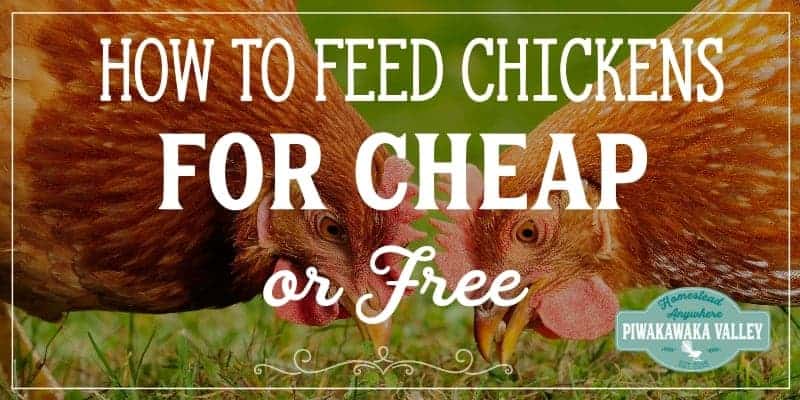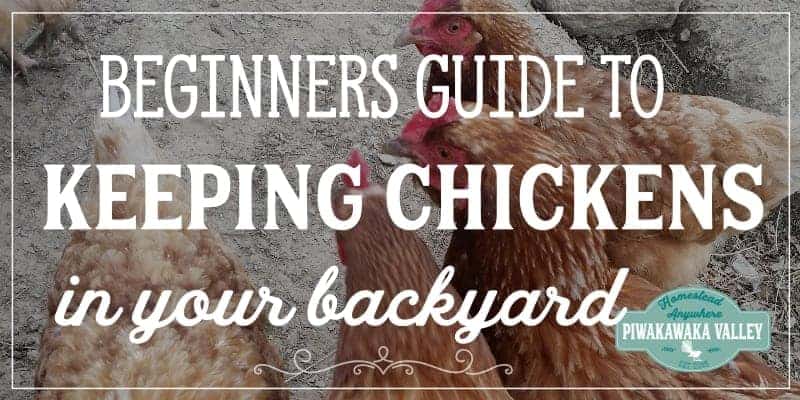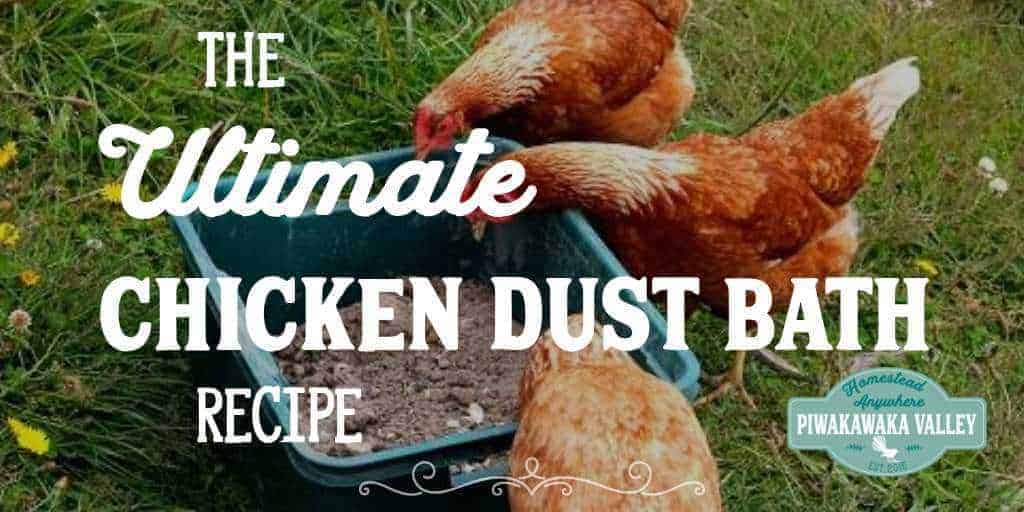12 Best egg laying chickens for your backyard
This post was most recently updated on April 1st, 2021
There are such a huge range of breeds available for keeping in your backyard, and choosing which one is right for you can be a real challenge. The reality is all female chickens will lay eggs, and it is a matter of deciding what other features you want in your hens, and weighing that up with their capacity.
Please read: This information is provided for educational purposes only and is not intended to treat, diagnose or prevent any disease. We encourage you to make your own health care decisions in partnership with a qualified health care professional.
This post contains affiliate links, this means at no extra cost to you, we make a commission from sales. Please read
our Disclosure Statement
What you need to consider when choosing the flocks
The best breeds is a very subjective measure, it depends on your preference, what is available where you are and how much you can afford to spend on the chickens.
Many breeds used to be used for , but are now mostly bred for their looks for shows and many have lost their capacity somewhat.
Space for your
Some chickens are notably larger than others. The bigger the , the more space (and food) they will need. However, larger chickens also usually provide larger eggs. Some chickens like the are on the larger size but they lay very well and are included in the foundation stock in the as well as other hybrid breeds.
Preferred Colors
Obviously, your personal preference comes in to play here. Some chickens have amazing feather patterns, colors and designs. Combs come in a variety of shapes and sizes and which you prefer is totally up to you.
Preferred Egg Colors
eggs come in a range of colors. They are all the same flavor on the inside, but the shells on the outside vary between breeds. A is when the coating on the outside of the actual shell is pigmented, have no pigmented coating, pink eggs have a lightly pigmented layer on top of a white shell. from Aracuna chickens have blue shells and an that lays olive green eggs actually lay a blue shelled egg and then add a coating of brown over the top.
Temperament
Most domestic chickens are personable and friendly, but some are more inclined to be stand-offish and wary of humans and other animals. Some are better at foraging than others too. Hand from chicks and spending time with them will make them more friendly, but some breeds are naturally more friendly and settled.
Price
Chickens that are show standard from top notch breeders are likely to cost more than some from a backyard breeder. Generally, they will all still lay eggs just fine, and some backyard breeders are better at selecting for laying traits than show breeders that are going more for size/shape/feathering.
Other uses
Do you want your laying hens to and reproduce? Do you want a ? Do you want their feathers for craft or re-sale? Do you want to try and preserve a rare ?
RELATED POST: Best dual purpose chickens
RELATED POST: Best heritage breeds
12 Best chickens for your backyard
1. aka Barred Rock
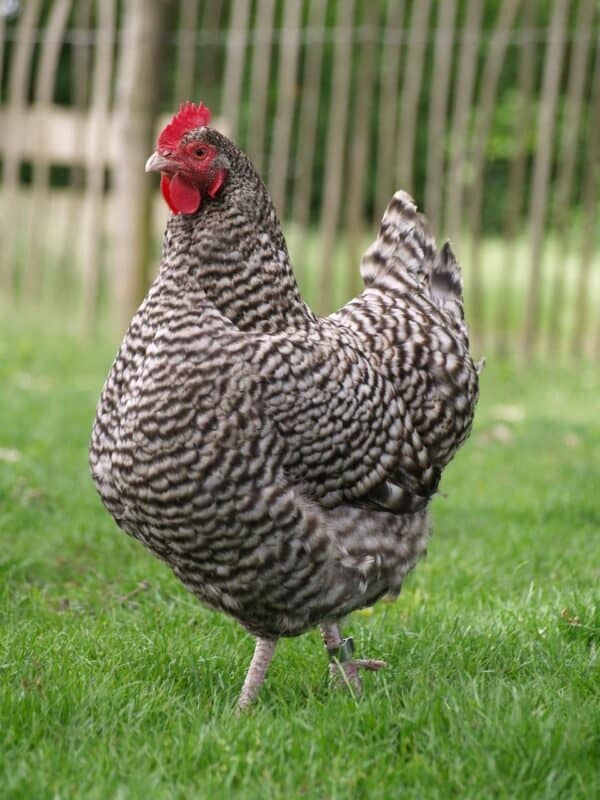

Plymouth rocks are among the most common backyard chickens. They well and don’t need a lot of maintenance. =The are most well known – the black and white striped feathers are commonplace on homesteads around the world. chickens also come in Blue, Buff, Columbian, Partridge, Silver-penciled and White.
They fit perfectly with other breeds and your family because they are docile and calm. Plymouth Rocks even respond well to petting and will jump at the chance of a cuddle- excellent feathery pets.
They grow to only about 7.5 pounds, so they’re small enough for your coop but also great a dual purpose chicken breed if you want meat.
A Plymouth Rock chicken will lay four large eggs every week – all year round. The hens will sometimes go broody in the Spring and they make excellent mothers.
2.
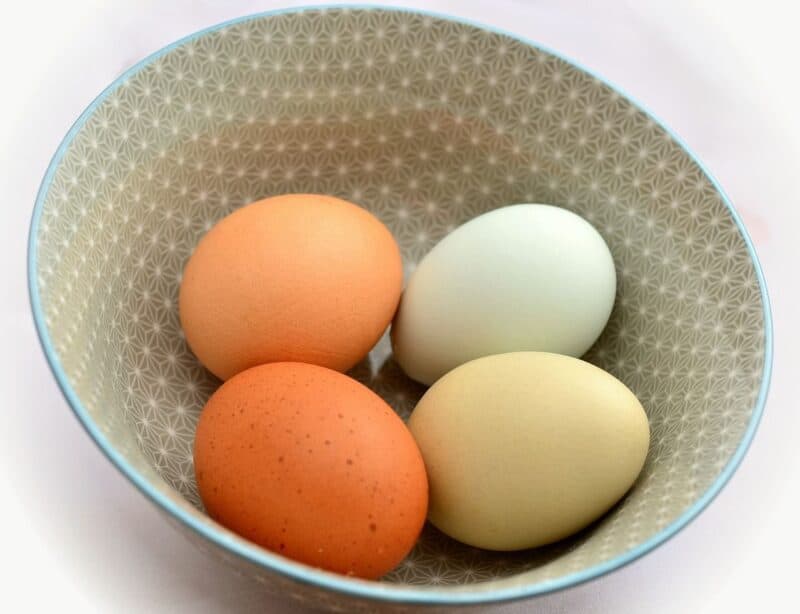

The is a hybrid variety that lays colorful eggs -commonly green or blue but different lines lay different combinations of colors.
They are medium sized and they are not aggressive, usually they are quite friendly.
In terms of climate, Easter eggers are suitable for both cold and hot temperatures. What’s more, they take confined spaces well, but they are still fine roaming in the yard.
Easter eggers will give you approximately four each week. The only problem is they’ll be too beautiful to crack open.
They are perfect for city backyard coops because they’re not noisy, relatively docile, and very calm.
3. Dominique
Dominiques are plump and cute looking birds. They are a great addition to your backyard because they are docile and very relaxed. What’s more, they do well in any climate. They will lay a minimum of four eggs weekly and will lay year round
Originally bred by the pioneers in the USA, they were bred to lay well and keep the family fed without eating too much food themselves.
This of makes a perfect family pet. However, because the birds are so chilled, they are more prone to predators. So while they enjoy the outdoors, they need more protection than other birds.
Sadly, it’s a protected heritage and there are not many of its kind left.
4. Wyandotte
These majestic birds will have your backyard looking like a queen’s parade. Their regal-looking plumage comes in black, silver laced, gold-laced, blue, and many more.
Wyandottes are usually calm, but they are a bit on the introverted side. They tend to be a little detached and are not the cuddly pet type.
With other chickens, they can be aggressive and bossy. They want the coop to treat them like the queens they are. It might be a good idea to get fewer of these birds to keep the peace.
The birds will lay approximately four to five eggs each week. Additionally, they do well in colder climates; when it’s hot, they tend to need a lot of care to keep them cool. In terms of confinement, they prefer to roam around and they make good foragers.
This makes a wonderful addition to your .
5.
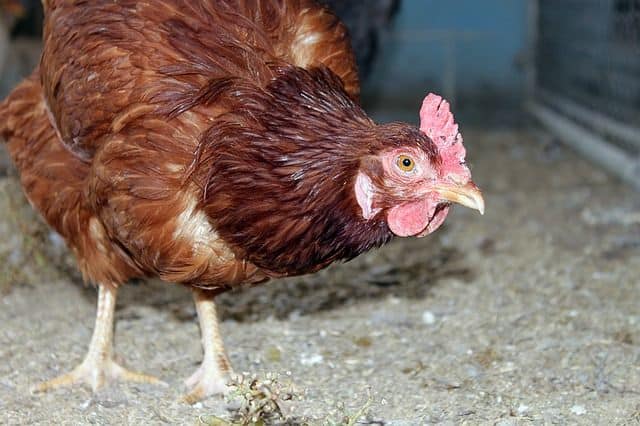

These tough nuts do well in most climates and are low maintenance. What’s more, they are friendly birds and very popular with people wanting a reliable .
They aren’t too picky about the space arrangements and can thrive both in confinement or let loose to free range.
Rhode Island Reds are quite productive. They will lay not less than four eggs per week and can lay as many at 6 per week. When it comes to their looks, however, they are quite plain, they are a dark chestnut red all over.
Overall the is a practical addition to your and they are also known as a , they hens are not very large but young roosters grow quickly and grow to a useful size in about 4-5 months as a .
6. New Hampshire Red
New Hampshire reds look a lot like the Rhode Island kind. This makes them mostly unattractive but very practical as a .
Regarding eggs, they are best in their class, with an average of 5-6 per week. They are well known for their large brown eggs and they make a wonderful addition to a homestead. They are also mostly docile but tend to get aggressive with other breeds.
7.
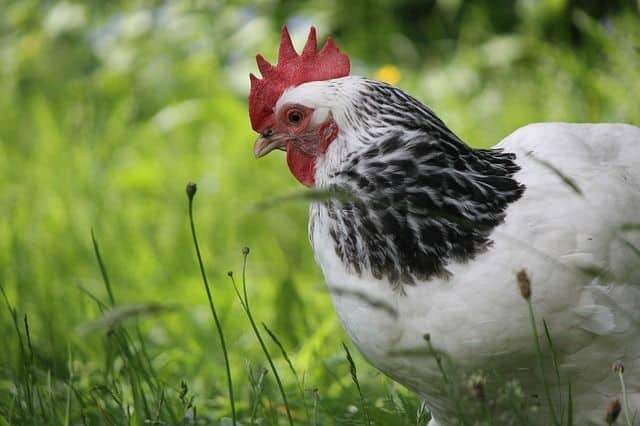

The Sussex is a beautiful speckled with a warm demeanor. It is an explorer by nature, so it loves foraging and following you around.
It’s not an aggressive . And it’s quite a chatter – she loves to talk, but it’s not too noisy. The hens adapt well to cold climates, however, they don’t fare well in the heat. They are quite productive, also giving 4 to 5 eggs each week all year.
Sussex chickens come in several different colours with the Light Sussex and being the most popular. They lay large long pale pinkish blushed eggs.
We had a growing up and she was a Light Sussex and she thought she was a person! But she did give us a fresh egg almost every day.
The Light Sussex is one of my favourite , they are larger hens, but gentle and robust.
8.
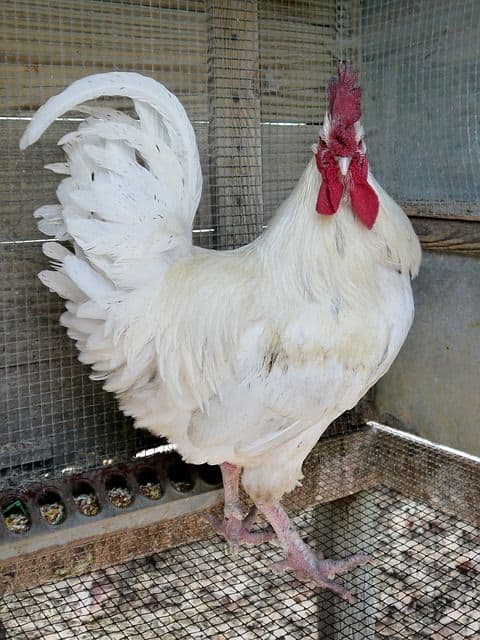

The has been used as a commercial before the invention of the hybrid layers. Leghorns come in brown or white and they lay large white or cream eggs.
They are generally laid back and friendly, and they are on the smaller side, so they eat less feed. They do well foraging for some of their food and they make a great addition to a .
Hens will usually lay about 250 eggs per year and will do so for many years.
9.
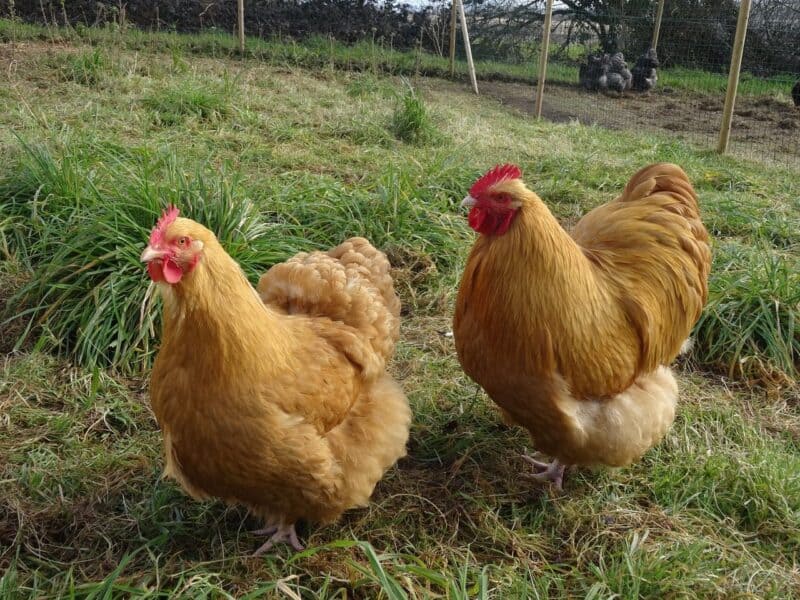

chickens are fluffy, good looking birds that weigh in at around 7 pounds. They are calm and cuddly. On top of that, they don’t make much noise. They lay 4 to 5 eggs every week, make wonderful hens and brilliant mothers to her chicks.
Buff Orpingtons are the perfect addition to the backyard garden; more eggs plus lots of fluffy fun for the kids.
chickens come in several different colours, but the buff seems to be a real preference for many homesteader, I am not sure why. We have black, lavender and blue chickens on our farm.
10. Commercial hybrid
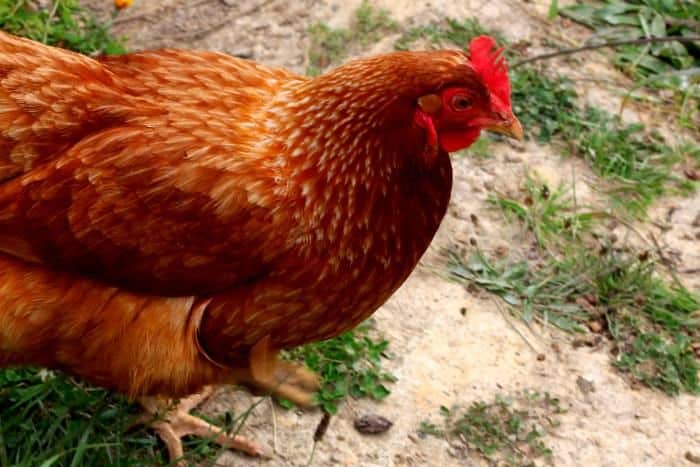

Just because they are hybrids doesn’t make them bad. They are super efficient laying machines, but they are also friendly, gentle, good free rangers and fairly climate tolerant.
The , hyline, brown shaver and many others are all varieties of commercial hybrids.
They are bred as sex linked so a boy is a different colour to a girl , this make ensuing they are only selling the chickens to people that are wanting them for .
You cannot them true to type at home, so they have to be bought from the hatchery. But that doesn’t make them bad, they are lovely little chickens and actually one of my favourite to raise.
11. Ameraucana
Ameraucana, not to be mistaken for Americana, is a pure with handsome bearded chickens laying at least three eggs per week. Their might not be as high as some of the other breeds listed above, but they still make a wonderful despite laying slightly .
One thing that brings their laying average down is that Ameraucana hens do go and will raise a clutch of chicks once a year for you if you have a rooster or access to fertile eggs.
They take a bit of time compared to other chickens before they start laying eggs. And when they do, they give 3-4 cute every week.
Americaunas have a reputation for being alert and non-aggressive and are a good . However, they don’t enjoy the cuddles as much as some breeds might. These pedigree chickens do better in the cold and can’t handle the heat well.
12.
The Australorp is a of Australian origin, developed as a utility with a focus on and is famous for laying more than 300 eggs in a year quite regularly.
They are friendly, good foragers, lay for many years and have been bred as the perfect homestead . They lay a pretty much every day of the year, often just with a break over the coldest month of the year when they molt.
Best chickens for eggs
If you are only wanting , go for a commercial hybrid laying . They might be boring brown, but they are small, friendly, feed efficient and hardy as well as laying a almost everyday for the first 18 months to two years.
If you need a that will go so you can raise your own replacements I would go for the Austalorp chickens.
What are the best chickens?
Again, I would say the commercial hybrid birds or Australorp.
What are the best white chickens?
The most productive white would be the , followed closely by the Light Sussex or if you don’t mind the eggs being slightly cream coloured.
Do you need to have a rooster around for laying chickens to produce eggs?
Hens will lay eggs without having a rooster around. If you keep a rooster, the eggs your hens will lay are more likely to be fertile.
Fertile eggs are edible, and they only start developing in to chicks once they are placed in an incubator or under a . Eggs can be stored at room temperature for up to 2 weeks before placing them under a and they will not start to develop the embryo until the heat is applied.
Is it worth it to raise chickens for eggs?
If you are happy to eat commercially produced eggs, you will probably be unlikely to be able to raise chickens for eggs to compete for price.
However, if you are paying for pasture raised eggs at the store, it is likely that you will find it cheaper to keep chickens in your backyard.
You also get the benefit of all the manure for your garden and they eat food scraps from your kitchen as well.
How many chickens to buy
Chickens will usually lay 4-5 eggs each per week, or slightly more if you have amazing laying hens. How many hens you choose to own, will depend on how many eggs you think you will eat in a week on average.
Remember most chickens stop laying for 1-3 months over winter as they molt during the cold weather, and if you let them go or raise chicks, they will not lay during that time either.
If you usually use 1-2 dozen eggs per week in your household then 3 to 4 hens will be a good number of chickens for you.
How old are chickens when they start to lay eggs?
Chickens will start to lay at about 18-26 weeks of age, this varies depending on the and also the length of daylight when they are due to start laying eggs. Chicks born in the Autumn/Fall will start to lay in Spring time as the days start getting warmer and lighter. Chicks hatched in Spring time if they don’t mature before the daylight hours drop below 14 hours in a day, then you might find they don’t start to lay until they are over 6 months old.
Can you mix different breeds of chickens in the same coop?
Generally speaking most breeds will get on well with others. You can have a mixed coop, but be aware that when you add new chickens to an existing they will have to find their place in the pecking order which might result in a few fights.
It is best to introduce a bunch of new chickens at once rather than one at a time.
Best backyard laying chickens
There are so many chickens available and trying to choose the best backyard laying chickens for your situation can be an overwhelming task. I trust these recommendations have helped you make a decision for what breeds you might like to try in your backyard.
What egg laying chicken breeds do you have at your place? Share your chicken experiences with me in the comments below!
Please pin and share with your friends.
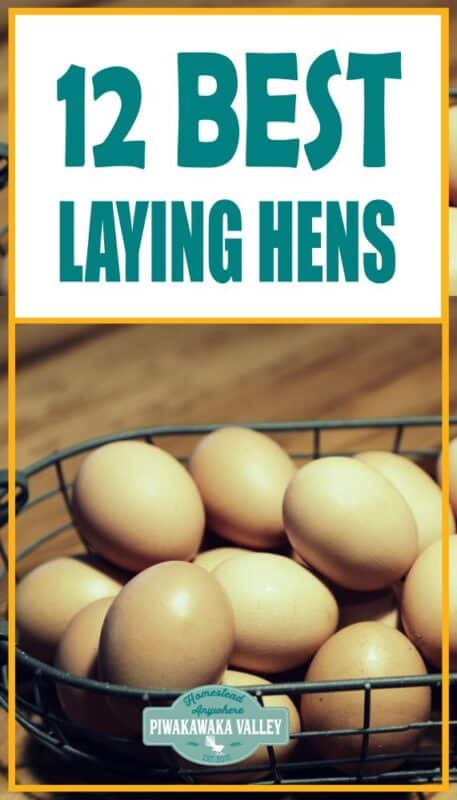
 breeds you might like to try in your backyard.” width=”457″ height=”800″ data-pin-description=”Choosing laying chicken breeds for your backyard flock. There are so many chickens available and trying to choose the best backyard laying chickens for your situation can be an overwhelming task. I trust these recommendations have helped you make a decision for what breeds you might like to try in your backyard.”>
breeds you might like to try in your backyard.” width=”457″ height=”800″ data-pin-description=”Choosing laying chicken breeds for your backyard flock. There are so many chickens available and trying to choose the best backyard laying chickens for your situation can be an overwhelming task. I trust these recommendations have helped you make a decision for what breeds you might like to try in your backyard.”>




